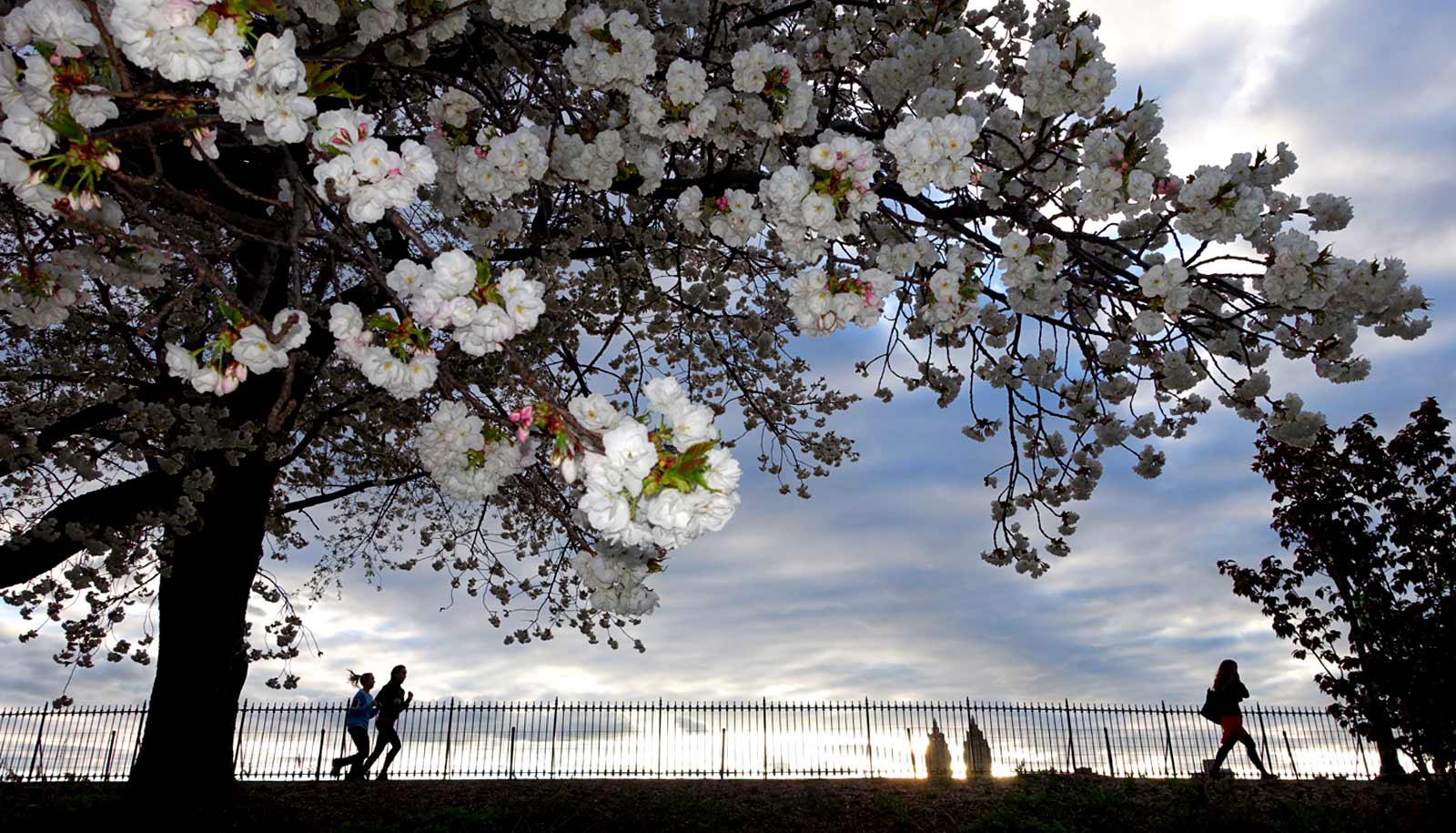City ‘heat islands’ trick trees into thinking it’s spring

Trees and vegetation in urban heat islands turn green earlier in the year but are less sensitive to temperature change than vegetation in surrounding rural regions, according to a new study.
It’s a symptom of the way cities trap heat, researchers say. The findings have ramifications for people with allergies and anyone interested in the ecological impact of climate change, says Yuyu Zhou, an associate professor of geological and atmospheric sciences at Iowa State University and a coauthor of the study in PNAS.
Researchers examined satellite images of 85 large cities in the US from 2001 to 2014, which allowed them to detect changes in greenness of plants and determine the timing when plants start to grow in spring.
The data show the start of the season arrived on average six days earlier in the studied cities than surrounding rural areas due to the heat island effect.
Little research has investigated the connection between the heat island effect and phenology, or the study of cyclical and seasonal natural phenomena, Zhou says, adding this kind of information will become increasingly important as scientists attempt to predict how plants will respond to changing environmental conditions, including climate change and urbanization.
“In the future, we want to have more accuracy in our Earth system models to predict changes in our environment. Taking into account the interactions between temperature and phenological change in vegetation will mean those model predictions will improve,” Zhou says.
The study offers some insight into how a warming climate could affect vegetation in all kinds of environments, not just urban ones, says lead author Lin Meng, a PhD student in geological and atmospheric sciences.
“We used the urban landscapes as a warming laboratory,” Meng says. “Using a space-time substitution approach, cities represent future warming scenarios.”
In addition to studying the urban-rural difference of the start of the spring season, the researchers analyzed the advancement rate of the start of season under warming. The findings show the advancement of start of season of urban plants is lower than that of rural plants with the same amount of temperature increase, suggesting urban plants become less sensitive to temperature due to the heat island effect.
That might be due to warmer winters in urban areas, Meng says. Some studies have suggested that trees need to chill enough in winter in order to respond to increases in temperature in spring.
The elevated winter temperature in cities reduces the chilling accumulation and causes decreased sensitivity of trees in urban areas. Zhou and Meng say there are ongoing discussions on the reason for the reduced advancement rate, and further studies must delve deeper into this question, but the data support that claim.
“Temperature is only one factor for the timing of vegetation growth, but it’s clearly an important one,” Zhou says.
Source: Iowa State University
The post City ‘heat islands’ trick trees into thinking it’s spring appeared first on Futurity.
